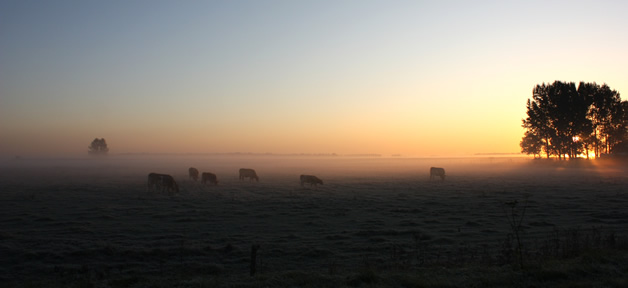In case you hadn’t noticed, at Dorset Energized we are kickstarting a renewable energy revolution!!!
Individuals, households, businesses, communities, charity groups and organisations all need to do our own ‘little bit’ and pull together to:
1) invest in renewable energy today and
2) reduce our energy demand by becoming more energy efficient and sustainable.
Our website is packed full of ideas for steps you can take today to feel good, save the planet AND even save money too! From simply switching energy suppliers to Good Energy (something I am very happy to have recently done myself!), to buying a wood fuelled heater, investing in solar panels or buying an electric car but there are also some tips on energy efficiency, and on living in a more sustainable and natural way – something more and more of us are quite frankly yearning for!
In my spare time I also run Compassionate Dorset – the local supporter group for the leading farm animal welfare charity Compassion in World Farming who campaign peacefully to end factory farming – and as it also happens to be Soil Association’s Organic September, I wanted to let you know about a new campaign to end factory farming called ‘RAW’ and how it directly relates to the most pressing issues of sustainability including climate change and food energy.
RAW is an ambitious, international campaign and it aims to kickstart a food and farming revolution…
Factory farms are everywhere – they raise around 2 in every 3 farm animals, and they are here in the UK and Dorset! But they’re not working. Industrialised meat and dairy farming is dangerous, unfair and dirty, placing untold pressure on animals, people and the planet.
RAW will expose and explore the true cost of factory farming and build a movement for positive, practical food and farming solutions. RAW believes in better farming; farming that is safer, fairer and greener; farming that gives us all access to healthy, affordable food.
Factory farming and climate change
Factory farming intensifies climate change, releasing vast volumes of greenhouse gases.
- Livestock farming accounts for around 18% of our global greenhouse gas emissions – more than the global transport sector.
- Factory-farmed beef requires twice as much fossil fuel energy input as pasture-reared beef.
- Methane and nitrous oxide are 25 times and 298 times more potent than carbon dioxide respectively in terms of their potential to intensify global warming.
- Added heat stress, shifting monsoons, and drier soils may reduce yields by as much as a third in the tropics and subtropics, where crops are already near their maximum heat tolerance.
Factory farming and resource waste
Factory farming wastes resources, requiring vast inputs but giving relatively little food energy in return.
- On average, it takes around 6kg of plant protein to produce just 1kg of animal protein.
- It takes over 15,000 liters of water to produce an average kilo of beef. This compares with around 1,200 liters for a kg of maize and 1800 for a kilo of wheat.
- In the US, chemical-intensive farming uses the equivalent of 1 barrel of oil in energy to produce 1 ton of maize – a major component of animal feed.
Factory farming and biodiveristy loss
Factory farming endangers the natural world, threatening the survival of many animals and plants.
- Current trends suggest that agricultural expansion in the Amazon for grazing and crops will see 40% of this fragile, pristine rainforest destroyed by 2050.
- One in 10 species could face extinction by the year 2100 if current predicted climate change impacts continue.
Factory farming and pollution
Factory farming pollutes environments, contaminating the natural world with a range of potentially lethal toxins.
- US livestock farming is responsible for around a third of the nitrogen and phosphorus that enters the country’s freshwaters.
- Some large farms can produce more raw waste than the human population of a large US city.
- Livestock farming accounts for over 60% of our global ammonia emissions.
- Pig slurry is 75 times more polluting than raw domestic sewage.
But this is still just a small part of it, there are also issues with; animal cruelty, food inequality, health threats, disease risk and damaged livelihoods. By taking action against factory farming, we will not just be creating a food and farming revolution; we are also tackling one of the world’s greatest sustainability challenges.
Join the RAW Campaign
Find out more about RAW and help expose the true cost of factory farming. Let’s kickstart a food and farming (AND renewable energy) revolution together!
Visit the website today: http://www.raw.info
(And for more information on Compassion in World Farming’s Dorset supporter group visit: www.compassionatedorset.co.uk)
Organic is Better for the environment
All month Soil Association have been celebrating Organic September!
Organic farming reduces environmental pollution and the release of greenhouse gases from food production by severely restricting the use of artificial chemical fertilisers and pesticides. Instead, organic farmers rely on developing a healthy, fertile soil and growing a mixture of crops.
Organic farming offers the best, currently available, practical model for addressing climate-friendly food production. This is because it is less dependent on oil-based fertilisers and pesticides and confers resilience in the face of climatic extremes. In fact soils on organic farms store higher levels of carbon in the soil – so if organic farming was common practice in the UK, we could offset at least 23% of agriculture’s current greenhouse emissions.
Choosing organic, local and seasonal food is an easy way to significantly reduce your carbon footprint.
Organic standards also insist that animals are given plenty of space and fresh air to thrive and grow – guaranteeing a truly free-range life.
Take the Organic Pledge to support sustainable farming when you shop: www.soilassociation.org/organicseptember
Oh and by the way, happy World Peace Day too! : )

